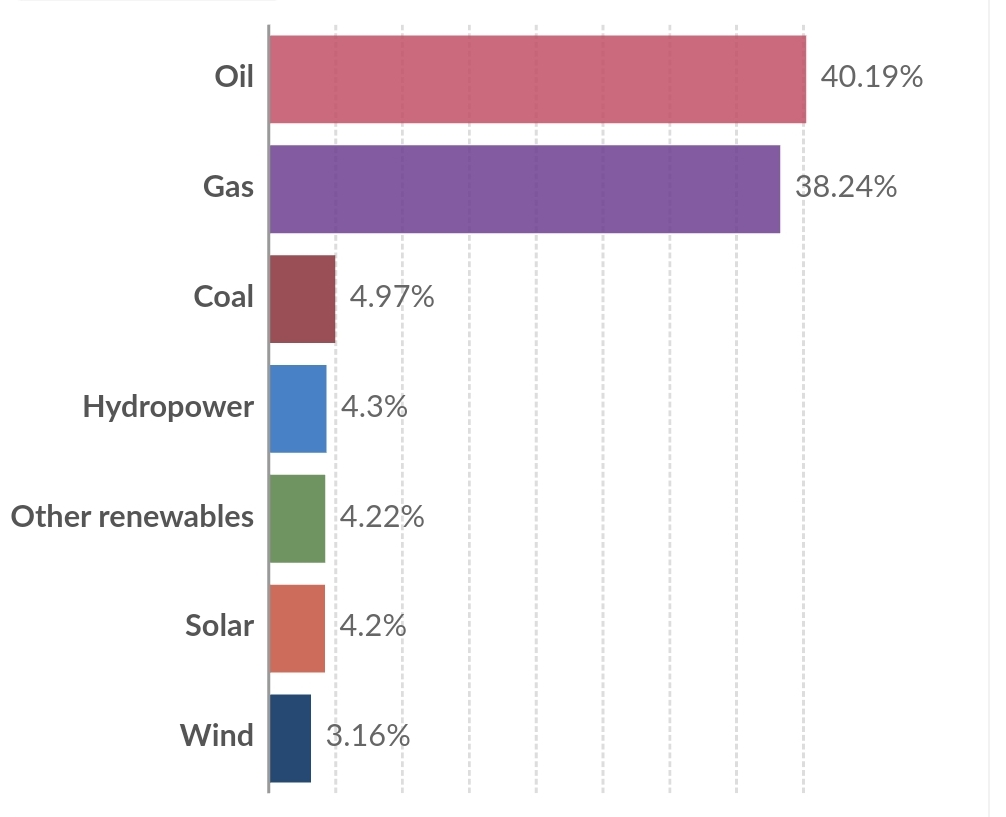Meanwhile in Germany:

You are aware that this is over 5 years old data (2017!) for the German electricity mix, right?
Please don’t get me wrong, the scale up of renewable energy sources is certainly not going fast enough in Germany (thanks to our conservative government that ruled the country for 16 years until 2021!), but please argue this position using the real data for 2023 (57.7% renewables in the German electricity mix)!

You’re right, I’m sorry. I chose the picture because it was the first okay one I found in English. I’ll change it right away.
And please don’t forget that Germany exports 26.3% of its electricity, while France imports 16.4% of it.

So, Germany could cut 26.3% of its fossil fuel generation and go up to 84% renewables if countries like France wouldn’t depend on it that much.
Gritinks from Poland!

Italy isn’t any less

Schleswig-Holstein is at 100% wind since 2014. It’s Southern Germany that lags behind. https://spd-geschichtswerkstatt.de/wiki/Energiewende
Does this include vehicles? 😅
It could, if cheap, light, efficient EVs become legal and popular in Europe.
I personally want something that would never be legal; A 4-wheeled, beefed up, 100+ km/h electric velomobile with something like CanAm Spyder tires (and track width) and a proper comfortable seat. A bit like the LCC rocket, but fully enclosed and possibly lighter.
I could get something more dangerous, like a motorcycle. While this would be in an illegal limbo between car and motorcycle.
The Renault Twizy is a too tall, simply ugly, and thoroughly nerfed version of a simile of what I wish for, and Europe will continue just vaguely trying (and complacently falling) to make speed-limited microcars for cities of type L6e and L7e the “green option” looking for adoption, but that will never reach any kind of tipping point and we all know it. Not quite designed to fail, but definitely not designed for mass adoption.
The legal limbo of what I think would be more appealing is due to both the public and the governing bodies being entirely unwilling to tolerate what safety-wise amounts to a motorcycle with a car’s stability, without reducing speed. They’d never expect to successfully lock motorcycles down to “max 45 km/h”, but the category of “motorcycle” is uniquely privileged as a traditionally recognized transport device permitted to trade away safety for other benefits. Presumably because the trade is explicit enough, as there’s no mistaking it for a car.
Anyways…
The conclusion is that no, “it” doesn’t include vehicles, and won’t any time soon. The only desirable electric cars will remain massive and heavy and expensive (but thoroughly armored), so adoption will continue to be fairly slow, and they’ll be a big drain on the grid.
I’ll end on the note that motorcycles not being popular is a huge part of why western bureaucrats (barely) tolerate them. If this was to become popular among young guys who want a cheap fast car, it’d be extremely problematic for them, and not at all worth the accelerated energy transition.
Last note, Sierra Echo is also one I’ve been keeping my eye on, but since it’s fast and light, it’s also open-air like all these things apparently have to be. Oh, and it’s also not cheap.
Cleverly not counting nuclear as fossil is a joke.





